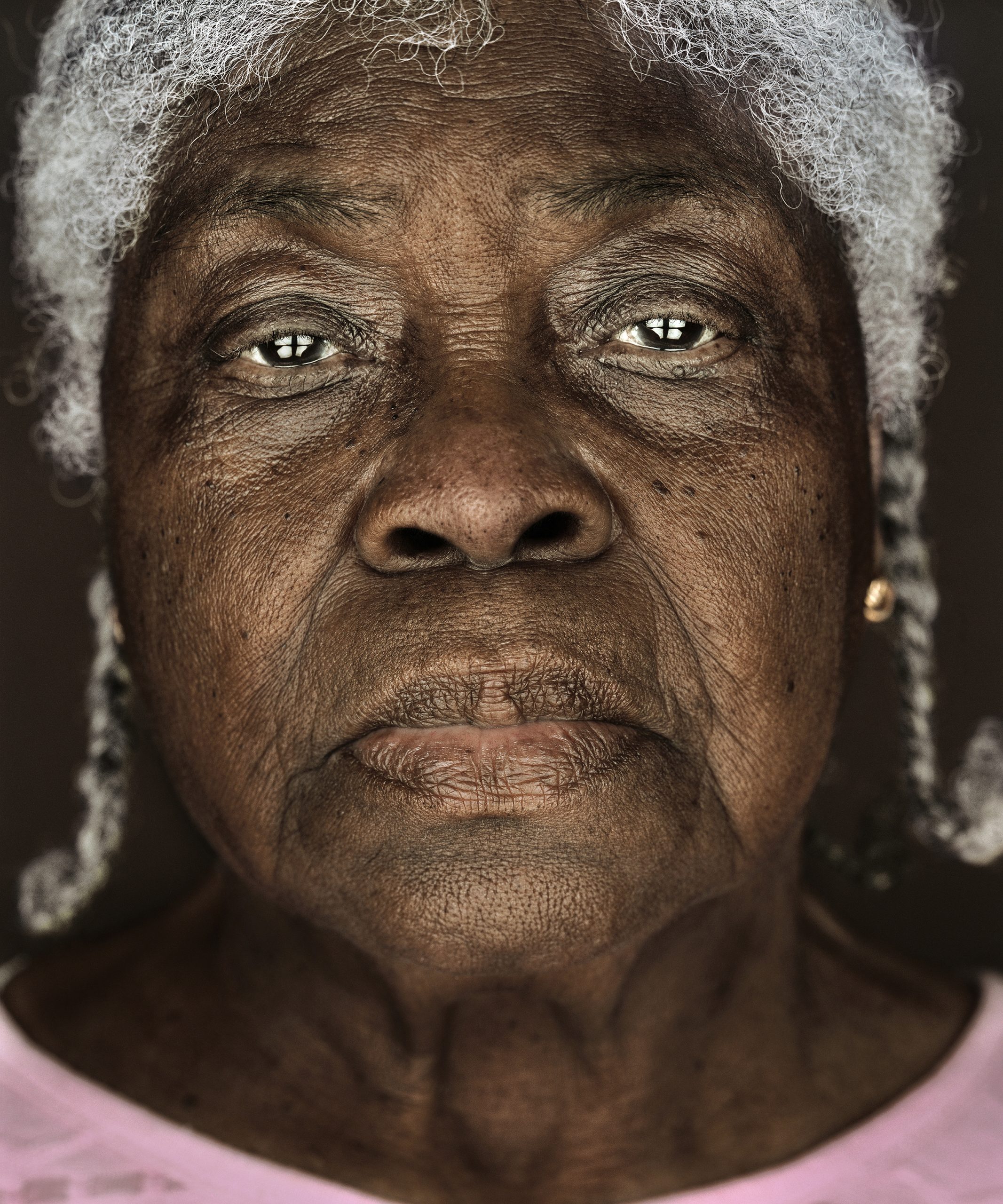‘There are moments that define us and there are moments that define others. It is the breath we take in exchange internally, that externally gives life collectively. Exploring representation through the lens of love and autonomy’. FR


On her 79th birthday in celebration, my mother and I took our much-awaited trip to the Tate Britain in London. We spent a beautiful day together on a gallery excursion through history, narrative and context, but on our departure, she commented:
“Franklyn, not one of them on the wall look like me”
You must be someone of importance to be placed on that scale, in that medium and in that space. She saw but she was never seen.
I promised on that day to change this.

Loretta Rodgers







My response stands in the reconciliation of a diaspora representation, a monument to love, light and learning. ‘Devotion: A Portrait of Loretta’, celebrates the significance and importance of my mother’s contribution, along with the generation of women from the Caribbean who took the leap of faith to come to Britain for a ‘better life’. Here represented by her wider circle of friends who have remained connected and resolute in their capacity to overcome.
‘We are able to stand because they have stood’. FR

Franklyn Rodgers at Devotion: A Portrait of Loretta






Loretta Rodgers at her exhibition



‘Devotion’ has been a personal photographic journey over several years, grounded in the history of cultural restitution. The work exhibited at Autograph ABP in the summer of 2018, the large-scale portraits created on a large format 10×8 plate camera, which was a technology not afforded to these women in their time.



It was important to create the work on this scale equal to the gravitas of their contribution, celebrating the lifelong relationships that have played a vital part in Loretta’s sense of well-being. This act in collaboration was one of reclamation in recognition and honour.

Baroness Doreen Lawrence of Clarendon, OBE
The exhibition also honours Baroness Doreen Lawrence, whose commissioned portrait marks the extension of connecting to the depths of devotion to her son, Stephen, and the cause to which she has fought injustice so fiercely.





Front facing gallery installation at Autograph ABP Rivington Street, London
The exhibition provided a means for what can be learnt from the passage of these women, of how they chose to present themselves and what that could mean to our younger generations. Ultimately what this dialogue speaks to is the precept of ‘the young looking at the young, but through the lens of time and circumstance.’ FR

Loretta and Franklyn Rodgers


Loretta Rodgers

